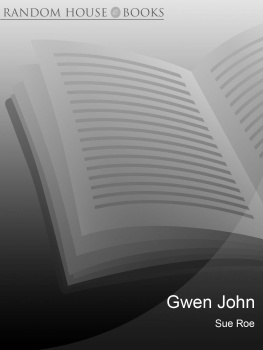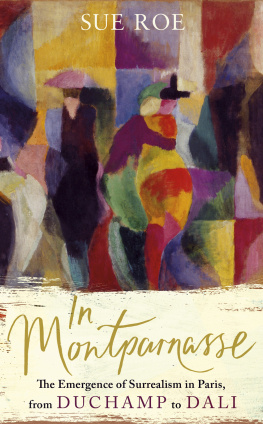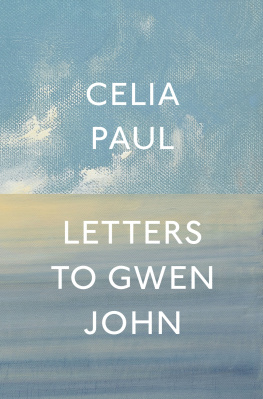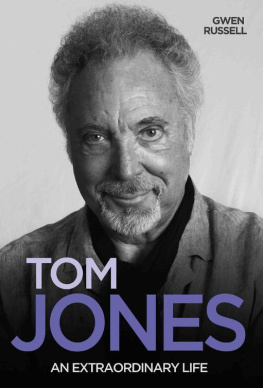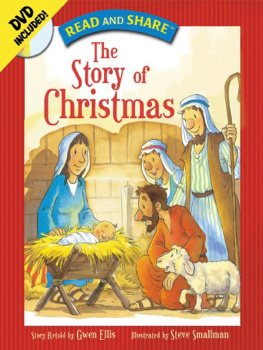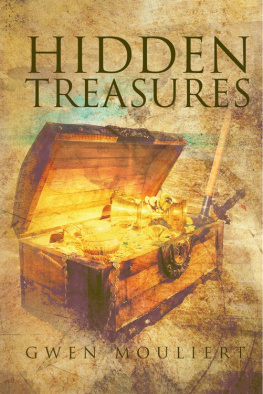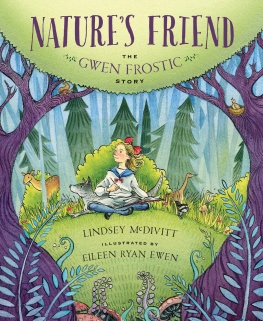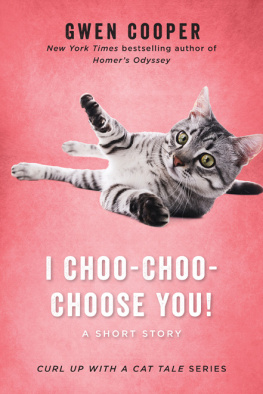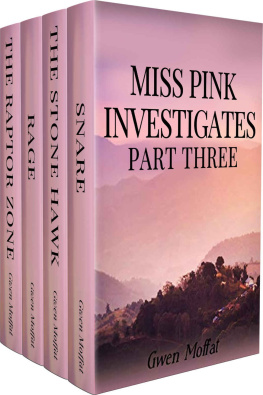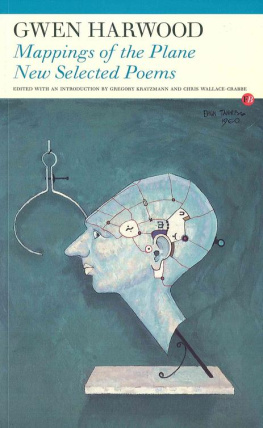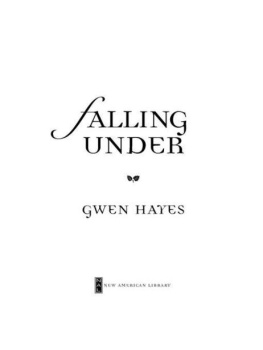ABOUT THE AUTHOR
Sue Roe was born in Leicester in 1956 and educated at the universities of Kent and Sussex. Following a career as a freelance writer and editor, she lectured at the University of East Anglia until 1996, when she resumed her freelance career. Her previous books include Estella, her Expectations, a novel, a collection of poems, The Spitfire Factory and Writing and Gender: Virginia Woolfs Writing Practice. She is editor of the Penguin Modern Classics edition of Virginia Woolfs Jacobs Room and co-editor of The Cambridge Companion to Virginia Woolf. A regular tutor at the Charleston Summer School, she currently lives in Brighton.
ALSO BY SUE ROE
Fiction
Estella: her Expectations
Non-Fiction
Writing and Gender: Virginia Woolfs Writing Practice
Poetry
The Spitfire Factory
Edited
Women Reading Womens Writing (ed.)
The Cambridge Companion to Virginia Woolf (co-ed.)
Virginia Woolf: Jacobs Room (ed.)
GWEN JOHN
A Life
Sue Roe

This eBook is copyright material and must not be copied, reproduced, transferred, distributed, leased, licensed or publicly performed or used in any way except as specifically permitted in writing by the publishers, as allowed under the terms and conditions under which it was purchased or as strictly permitted by applicable copyright law. Any unauthorised distribution or use of this text may be a direct infringement of the authors and publishers rights and those responsible may be liable in law accordingly.
Epub ISBN: 9781409029304
Version 1.0
www.penguin.co.uk
Published by Vintage 2002
4 6 8 10 9 7 5 3
Copyright Sue Roe 2001
Sue Roe has asserted her right under the Copyright, Designs and Patents Act 1988 to be identified as the author of this work
First published in Great Britain in 2001 by
Vintage
20 Vauxhall Bridge Road,
London SW1V 2SA
A CIP catalogue record for this book
is available from the British Library
ISBN 9780099267560
FOR MY FAMILY
Contents
Acknowledgements
In writing this book I have been indebted to many people for their assistance, encouragement and support. I have been able to let Gwen Johns voice speak throughout her story due to the generosity of her family, whose kind permission to quote from Gwens letters and papers has enabled me to present her as I wished to. I am deeply grateful to Anna John, Ben John, Rebecca John and Sara John for their generous support, encouragement and trust. To the generosity of Ben John and Sara John I owe the privilege of quoting from Gwen Johns own papers. I am grateful to Sara John for her close interest and constructive criticism of my treatment of Gwens spiritual development in the writing of this book, for the loan of private letters, and her own writings on Gwen. Ida Johns voice is freely heard due to the generosity of Rebecca John, as is Ada Nettleships. Betty Cobb has generously allowed me to quote Winifred Johns voice, and her own. To Julius White I owe the opportunity to present verbatim the voices of Dorelia McNeill and Augustus John.
My own familys support has helped me to complete the project, and I am grateful for the encouragement of my parents, Pauline and Malcolm Roe. I also deeply appreciate the continuing encouragement and support of John Spiers.
My agent, Gill Coleridge and my editor, Jenny Uglow, have sustained me throughout the writing and re-writing of the book. Without their expertise and support it would not be the book it is. My copy-editor and friend Beth Humphries also brought her expertise to bear. I am grateful to Jonathan Burnham for commissioning the book and to Alison Samuel, Publishing Director of Chatto & Windus, Jonathan Galassi, my publisher at Farrar, Straus & Giroux and Susan Grace Galassi, Associate Curator, The Frick Collection, for their advice and encouragement. I am also grateful to Cecily Langdale, author of Gwen John and to Alison Thomas, author of Portraits of Women: Gwen Johns Forgotten Contemporaries, for their generous willingness to exchange ideas.
In pursuing my research the support of archivists, curators and technicians has been invaluable. My first thanks must be to Dr Ceridwen Lloyd-Morgan, Senior Assistant Archivist, The National Library of Wales, who was unfailingly generous with her time and her considerable knowledge of Gwen John during each of my extended visits to the Archive of the National Library of Wales.
I am similarly grateful for the kind assistance of Tony Askin, Principal Technician, Twentieth Century Art, at the Metropolitan Museum of New York; also for that of Odile Barbier and Marie-Pierre Delclaux, archivists of the Gwen John Archive in the Muse Rodin, Paris, and for that of Claudie Judrin, Conservateur en Chef of the Muse Rodin and Alain Beausire, Charg des Archives et de la Bibliothque du Muse Rodin.
I also gratefully acknowledge the assistance of Andrew Barlow, Keeper of Fine Art at Brighton Museum; John Beynon, Hon. Curator of Tenby Museum; Jennifer Booth, The Archivist, Tate Archives, London; Mary Bowling, Curator of Manuscripts, the New York Public Library; Juliet Carey, formerly Assistant Curator at the National Museum of Wales, Cardiff; David Fraser Jenkins, Curator of Tate, London; Alex Robertson, Curator of the Leeds City Art Galleries. My thanks are also amply due to the staff of the Pictures and Maps Department and of the Sound and Moving Image Collection at the National Library of Wales, and to the staff of the Archives of the Museum of Modern Art, New York.
The descendants and executors of Gwens friends have also been most generous and I am very grateful to Daniel Huws for kind permission to quote from Ursula Tyrwhitts letters and to Brian Read, for kind permission to quote from those of Arthur Symons. Alexandre Roche generously gave permission to quote from the reminiscences and letters of his late mother, Louise Roche.
In Plneuf, Monsieur and Madame Burquier de Germond showed immense kindness in opening the doors of the Chteau Vauclair to me. I am deeply grateful for their welcome and for their interest. Michel Grimaud gave valuable assistance with my research into painters in Brittany. Madame Nathalie Morin Simorre kindly showed me inside no. 87, rue du Cherche-Midi.
To the encouragement and advice of Terence Blacker the idea for this book owes its survival in the early stages and beyond. I have also appreciated his critical responses to portions of the book as it emerged as well as those of Roger Deakin and Terry James. Robert Baldock gave invaluable help and support. Kate Hardy shared her practical knowledge of drawing and painting and Barbara Hardy gave ongoing encouragement and generous hospitality in Gower. Louise Murphy was always there in Paris, offering generous hospitality and help in Paris and accompanying me to Plneuf.
Particular thanks are due to all those, family and friends, who regularly gave patient and enthusiastic personal support on a regular basis. In addition to those named above, I am grateful to Jehane Boden Spiers, Robyn Bolam, Marcella Evaristi, Adrian Fisher, Jennie James, Nina Martel, Shelley Roberts, David Roe, CBE, Alison Sharpe, Stephen Ward.
I was in grateful receipt of a grant from the Society of Authors. I also gratefully acknowledge permission to quote from the Foster-Murphy Papers, Manuscripts and Archives Division, The New York Public Library, Astor, Lenox and Tilden Foundations, and from the John Quinn Memorial Collection, Manuscripts and Archives Division, The New York Public Library, Astor, Lenox and Tilden Foundations, by kind permission of the New York Public Library. Quotation from

